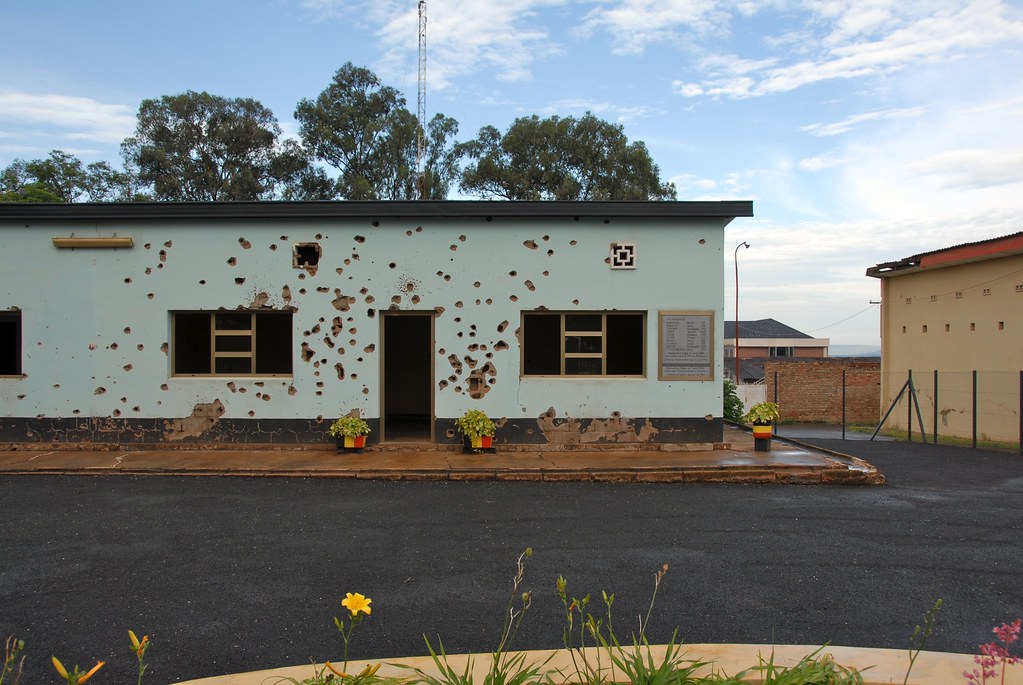Camp Kigali Belgian Memorial
In the quiet heart of Kigali, away from the city’s modern hum, stands the Camp Kigali Belgian Memorial — a solemn reminder of courage, tragedy, and the heavy price of peacekeeping during one of Africa’s darkest chapters. This memorial is not just a historical site; it is a deeply emotional space that captures the pain and heroism of the ten Belgian UN peacekeepers who were killed at the onset of the 1994 Rwandan Genocide against the Tutsi. For visitors seeking to understand Rwanda’s path from horror to healing, a stop at Camp Kigali offers a moment of reflection and a deeper connection to the country’s resilient spirit.
The Story Behind the Memorial
On April 7, 1994 — just one day after the assassination of Rwandan President Juvénal Habyarimana — violence erupted across the country. At the time, Rwanda was hosting a UN peacekeeping mission known as UNAMIR (United Nations Assistance Mission for Rwanda). Among its contingents were Belgian soldiers tasked with protecting key figures, including the newly appointed Prime Minister, Agathe Uwilingiyimana.
When the chaos began, ten Belgian paratroopers under the command of Captain Luc Lemaire were sent to guard the prime minister. But within hours, they were surrounded, disarmed, and brutally killed by elements of the Rwandan army at Camp Kigali. Their deaths not only marked one of the most tragic moments in peacekeeping history but also led to Belgium withdrawing its entire UN contingent — a decision that left the mission severely weakened just as Rwanda plunged deeper into genocide.
Walking Through History
Today, the Camp Kigali Belgian Memorial preserves this powerful story with dignity and respect. Visitors enter through a serene courtyard into a series of stone buildings, where bullet holes remain visible on the walls — haunting evidence of the soldiers’ final stand. Inside, the rooms display plaques bearing the names of each of the ten Belgian soldiers, along with photographs and personal details that humanize their sacrifice.
The site’s simplicity is what makes it so moving. The walls are largely untouched, the scars of violence left as silent witnesses. Each bullet mark and inscription carries the weight of history, reminding visitors of the fragility of peace and the cost of international inaction.
A Place of Reflection and Learning
Visiting Camp Kigali offers a chance for deep reflection. Many guests combine it with a trip to the Kigali Genocide Memorial in Gisozi, creating a fuller picture of the 1994 genocide and Rwanda’s incredible journey toward reconciliation. Guides at Camp Kigali offer detailed historical insights, explaining the political tensions of the time, the UN’s role, and how this event influenced international responses to future conflicts.
While the memorial honors the Belgian soldiers, it also stands as a broader symbol of peacekeeping bravery and the moral imperative of protecting human life. It urges every visitor to remember — and to ensure such horrors never happen again.
A Quiet Tribute to Courage
Amid Kigali’s growing modern skyline, Camp Kigali remains a quiet sanctuary of remembrance. The nearby gardens, planted around the preserved barracks, create an atmosphere of calm and contemplation. Many visitors leave feeling humbled by the bravery of those ten men and by Rwanda’s enduring commitment to peace, unity, and forgiveness.
A visit here is not simply about history — it’s about empathy. It’s a moment to stand still, honor courage in the face of fear, and carry forward the lessons of the past.





